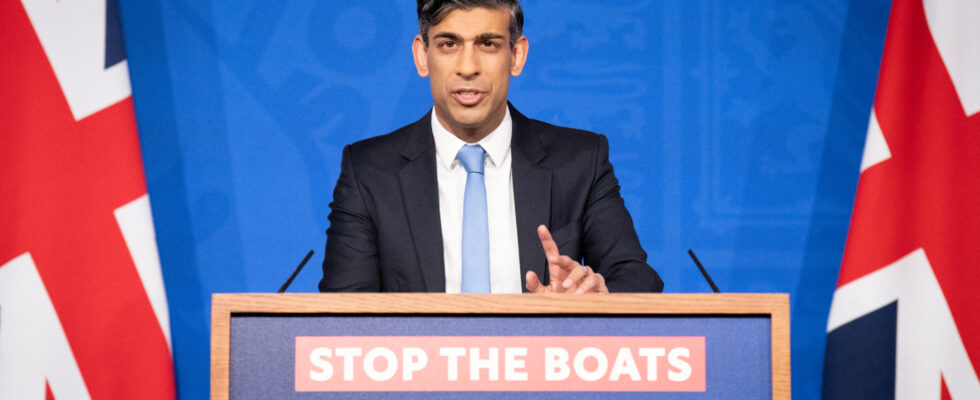Wilfried Devillers (special correspondent in London) / Photo credits: WPA POOL / GETTY IMAGES EUROPE / GETTY IMAGES VIA AFP
In the United Kingdom, the fight against illegal immigration may have reached a milestone. Parliament is preparing to give the green light to the expulsion of illegal immigrants to Rwanda. A controversial measure, carried by conservative Prime Minister Rishi Sunak. The law, particularly in London, divides the British.
The United Kingdom also has its immigration bill. Carried by conservative Prime Minister Rishi Sunak, it aims to deport illegal migrants to Rwanda. After negotiations it was finally adopted by British MPs last Wednesday. A bill that divides the British, particularly in London, an anti-conservative bastion.
“Illegal immigration needs to be controlled”
Paul has been hearing about this bill for almost two years. He, who is opposed to the influx of migrants into the United Kingdom, welcomes the project defended tooth and nail by the Conservative Prime Minister. “Illegal immigration needs to be controlled. We see what is happening here but also in Germany, in Italy, and it must stop. If people want to come, very good! But there is a right and wrong way to immigrate. And only the right way counts,” he says.
A conservative, John is also concerned about illegal arrivals in the country. “I think it’s a big problem here, as it is in many other European countries. Of course all countries need to control their immigration. But I don’t think this particular policy is valid or enforceable.” , analyzes the Briton. The bill provides for the expulsion of migrants to Rwanda without them being able to return to the United Kingdom. Once there, they will only be able to request asylum in the African country.
David strongly opposes this. “It’s completely impractical. It’s almost as if it’s a diversion… The government is only playing to the worst aspect of British populism,” he said. Voted by MPs, the text must now be validated by the House of Lords.
